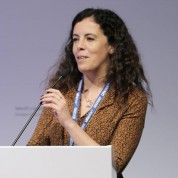PS 2.2
Harnessing Technology to Achieve Equitable Health Outcomes
01
Feb
Advancements in technology are revolutionizing public health and healthcare, particularly in promoting equitable health outcomes. Through telemedicine, mobile health apps, and data analytics, technology breaks down barriers to access, ensuring all individuals receive quality care regardless of location or socioeconomic status.
Telemedicine platforms enable remote consultations, bridging gaps in healthcare access for underserved areas. Mobile health apps empower individuals to monitor their health and access educational resources, promoting preventive care and early intervention. Data analytics identify disparities and inform targeted interventions, ensuring resources are allocated where needed most.
Electronic health records streamline information sharing and care coordination, enhancing continuity of care. Innovations in medical devices and diagnostics improve accuracy and accessibility of healthcare services, particularly in resource-limited settings. Translation tools and culturally sensitive materials overcome language and cultural barriers, ensuring healthcare information is accessible to diverse communities. Personalized medicine, driven by genomic data and predictive modeling, tailors treatments to individual patients' needs, optimizing therapeutic outcomes.
However, challenges such as digital literacy and access must be addressed to ensure equitable benefits. By harnessing technology effectively and addressing underlying disparities, healthcare systems can strive towards a system where everyone has equal opportunities to lead healthy and fulfilling lives.
This session will examine the role and potential of technology to deliver greater equity in the health sector, through a lens of existing technologies and also the lens of emerging technologies such as AI, blockchain, telemedicine and genomics.
Discussions will explore the challenges and opportunities presented by these technologies, particularly in resource-scarce countries, and how they can realistically aid policy makers and communities to achieve equitable health outcomes.
PANELISTS
Biosketch
Alexo Esperato
Chaiyatorn Limapornvanich
Chioma Nwachukwu
Kiesha Prem
Nada Malou
Suhel Bidani







